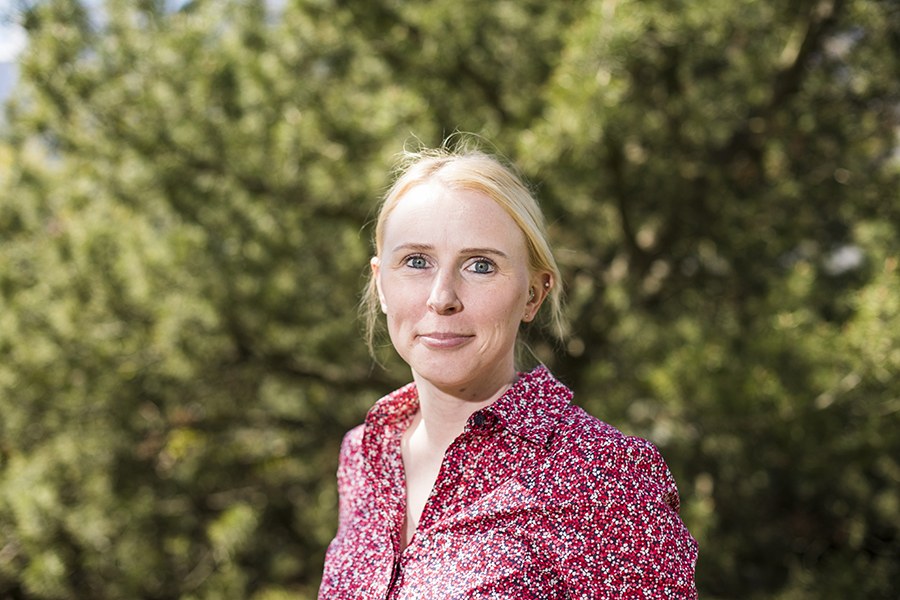Low political efficacy undermines political trust in Finland

In Finland, political trust is at a high level, but the differences between population groups are significant. Especially those with low level of education think that they cannot trust politicians and political institutions. Furthermore, they do not understand political processes or believe that they can influence decision-making. This is fertile ground for populist movements, which tend to oversimplify political issues.
“People’s sense of political efficacy plays a key role in how much they trust politics,” says Elina Kestilä-Kekkonen, professor of political science.
With Maria Bäck, Kestilä-Kekkonen has coedited a book on political trust, which is also the final report of the CONTRE Consortium of Trust Research: Pathways to Political Trust (2015–2019) project.
CONTRE is a joint endeavour of Tampere University and Åbo Akademi University funded by the Academy of Finland. In addition to the results of the projects, the book contains expert articles related to political trust authored by researchers at the University of Helsinki, University of Turku, and Tampere University.
Finland is different from the other Nordic countries
In European comparisons, Finns’ sense of political efficacy and political understanding are at a low level. However, country-specific averages do not tell the whole story of trust. Highly educated and more affluent people trust the political system while the less educated and those in weaker financial positions feel distrust.
“The great contradiction in Finland is that we have high average social and political trust, but low political efficacy. In the other Nordic countries, high level of political efficacy is combined with high confidence in the political system,” Kestilä-Kekkonen says.
Despite high political efficacy, there are right-wing populist movements in the other Nordic countries. What explains the difference to Finland?
“We have a complex and multilevel political system. It is difficult for people to get a grasp what is decided at what level. Another reason is the language of politics. I do not know if the situation is better in the other Nordic countries, but if we think of eg the social welfare reform process, it has not been so clearly communicated that people would have really understood what was going on,” Kestilä-Kekkonen says.

According to the researchers, a good level of trust is based on critical citizenship so that people know about things and are able to influence the system. Problems arise if people do not understand the political processes and do not trust them. The same applies to trust that is based on weak political knowledge. Society benefits specifically from trust that is based on critical citizenship.
Populists’ trust leads to a vicious circle
In the hands of populist parties, political trust may become a vicious circle with steep ups and downs.
According to Kestilä-Kekkonen, it is good that populist parties activate the groups that do not usually vote in elections. In this way, mistrust and frustration will not find an outlet outside the parliamentary system. However, problems arise when a populist party is in the government and has to make compromises. Failure in the government weakens the supporters' trust.
In Finland, the troubled reign of a populist party was seen when the Blue Reform Party that had separated from the Finns Party lost all its seats in the parliament in the election this spring. According to Kestilä-Kekkonen, the question is not just about Finland. That populist parties often fail to implement their programme in coalition governments is a pan-European phenomenon.
Populist parties may have three kinds of fate. They can be completely shut out of politics as has been done in Sweden. Secondly, other parties may include populist themes in their platforms and take political space from the populists. The third fate of a populist party is to take responsibility in the government.
“Populist parties are not always deliberately included in decision-making so that they would lose support. Such decisions are generally dictated by good election results. However, it is one way of controlling the rise of populist parties. All these three methods have been used and are not only specific to Finland,” Kestilä-Kekkonen points out.
The voice of minorities would strengthen trust
Josefina Sipinen, who investigated the recruitment of election candidates with foreign backgrounds, says that communication is an essential element in building the trust of immigrants. However, with the possible exception of Russians, communications in their own language is not much offered.
Sipinen estimates that the relationships between population groups will become a much more critical topic in Finland, too. Trust differentials may arise because of ethnic backgrounds, even though Finland has so far been a rather homogeneous country.

There is not enough research on the political attitudes of people with immigrant backgrounds. According to Sipinen, other studies show that first-generation immigrants may have very high degrees of trust in the Finnish system, which may have been caused by the relatively large difference between Finland and their country of origin. On the other hand, their descendants born in Finland do not feel trust if they encounter unequal treatment and do not have a point of reference elsewhere in the world.
“In the future, we may have a population group that is critical from the point of view of trust. They feel rootless because this group was born in Finland but they are not treated as Finns,” Sipinen explains.
Many first-generation Finns are now becoming adults. These population groups are under-represented in the decision-making bodies.
“If minority candidates are not elected and if they do not become election candidates in the first place, their voices will not be heard and this will not increase their trust in the system,” Sipinen says.
The welfare state increases trust
Trust-building factors include the welfare state, equal income distribution and low level of corruption. Poverty and growing income inequalities increase distrust.
The Nordic countries are by far the most notable countries of high social and political trust. The Netherlands and Switzerland are also included in this group.
The weakest trust is found in southern European countries, such as Portugal, Spain and Italy, and in the eastern European countries.
The economic situation is the most powerful factor affecting political trust. In the western countries, it largely explains the fluctuations in trust and therefore no sharply falling trends of trust have been observed.
In particular, the euro crisis caused economic recession in southern European countries where trust has now somewhat returned but has not reached its previous levels.
Class identification affects trust
In her article, Aino Tiihonen points out that citizens’ identification with a higher social class than their occupational position increases political trust. In short, the level of political trust experienced by working-class citizens will increase if they identify with the middle class.
Tiihonen explains this idea so that how a person sees him or herself in relation to his or her objective class position, matters more than just one’s occupational position. Previous studies have traditionally shown that social status would not directly affect political trust, even though educational level plays a role.
Tiihonen considers the definition of the social position essential. In studies on political participation, social position is often defined from the outside by categorising people into social classes based on their occupational roles, even if the people themselves do not feel that they belong in that class.
“I find this problematic. How people see themselves as part of the class structure is more truthful,” Tiihonen says.
According to Tiihonen, her observation does not break the foundations of class research, but introduces something new to it.

In her forthcoming doctoral dissertation, Tiihonen analyses how people’s interpretations about their own class position affect their voting behaviour. Her approach can also be used to give a new explanation for the the landslide victory of the Finns Party in the parliamentary election of 2011 when a large number of people with working-class occupations voted for the Finns’ candidates.
Those who belonged to the working class on the basis of objective indicators, ie occupation, could vote for the Finns Party, while the voters of the Social Democrats had a lot of people who were categorised as middle-class but who still identified with the working class.
Tiihonen’s interpretation changes the notion that social class would not be a key factor when people choose the parties they vote for.
“My research brings a broad answer to why this perception is perhaps not true and why social class plays a role especially when we take the subjective approach alongside with the objective class indicators. After that, things no longer look so straightforward,” Tiihonen explains.
European election measures the rise of the Finns Party
From the point of view of political research, Finns are living an interesting time as two national elections, parliamentary election and European election, are held a month apart.
It will be particularly interesting to see how the voters of the Finns Party will behave in the European election after they first became active in the parliamentary election. Finns Party supporters are famously not excited about the European election, because for them the EU is a nightmare scenario they would rather vilify. The most active voters in the European election are the highly educated and National Coalition Party voters.
“The Finns Party is rising. We cannot say anything about the upcoming election. Traditionally, political efficacy has been evident in the EU election in the way that people find EU matters difficult and distant. If people feel that they are unable to influence decision-making, that is even more difficult in EU matters,” says Kestilä-Kekkonen.
It is also difficult to estimate the election success of the Finns Party because their focus has shifted to immigration policy while EU criticism has taken the back seat after the party was split into two.
“On the other hand, immigration is an essential part of EU policy, so if you want to influence those things, the EU election is the place to do that. Maybe that will inspire the voters,” Kestilä-Kekkonen notes.
Text: Heikki Laurinolli
Photographs: Jonne Renvall





